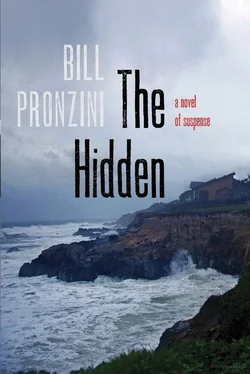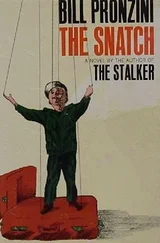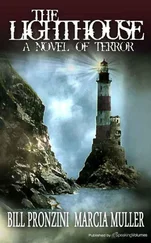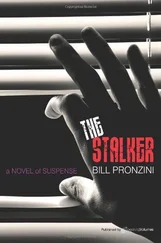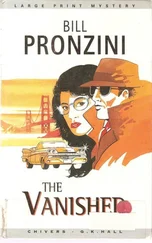Macklin said disgustedly, “Sweet car like that Boxster—Decker treats it the way he treats his wife, like crap.”
“He must’ve decided to go home after all.”
“Or off to see one of his girlfriends, or to the store for more booze.”
“If he’s going to Santa Rosa, I’d like to think Claire’s with him.”
“Probably not, from what she told you today.”
“No, probably not.”
Inside the cottage, he stacked kindling and started a fire while Shelby rummaged through the music CDs, selected one, and plugged it into the boom box. Classical stuff, baroque, a violin concerto—Vivaldi, he thought. She knew he didn’t much care for that kind of thing; his taste in classical music ran to the soft background variety, Brahms or Mozart, but what he really liked was jazz, any style but preferably Ellington or Coltrane or Miles Davis. He wondered if she’d picked Vivaldi to irritate him. No, she wouldn’t do that. She wasn’t petty. Probably chose that CD because it matched her mood.
Shelby curled up with a book in one of the chairs facing the fire. So he rummaged around in the bookcase and found a local history of the Mendocino coast from Gualala to Fort Bragg. History was a subject he’d always enjoyed—American, foreign, regional, all kinds. One of his pet peeves was the average person’s ignorance of and disinterest in past events. How could you understand what was going on today in politics, economics, religion, countries like Iraq and Afghanistan, society in general if you didn’t know or care what influenced and shaped each over years, decades, centuries? How could you support your opinions and make informed decisions without a historical foundation?
The book was easy reading and informative—a good thing, because his attention span wasn’t what it used to be. He hadn’t known that this part of the coast had been a hotbed of liquor smuggling during Prohibition. Ships loaded with Canadian whiskey had made regular runs down from British Columbia, anchoring just outside the five-mile limit, and rumrunners had gone out in launches and fishing boats and brought in cases and hid them in barns until they could be trucked inland across the Coast Range. Around the time of Repeal there’d been a gun battle between bootleggers and federal agents in a place called Bourne’s Landing, near Gualala. One of the agents had been wounded and another one kidnapped and held hostage.
Exciting times. Bad times, too. Andrew Volstead’s so-called noble experiment had been anything but. Hadn’t somebody once said that the country would’ve been saved a lot of grief if Volstead had been a drunk like everybody else?
Macklin lowered the book so he could watch Shelby over the top of it, something he never tired of doing. Her slender body was as flexible as a cat’s; she sat coiled with her legs tucked under her, her head tilted away from him, seemingly absorbed in her paperback. Her face, in profile and lit by the fire, had a kind of Madonna-like radiance.
He loved her so damn much.
T E N
ON THE ROAD AGAIN …
He liked driving the coast highway. Day or night, rain or shine, it didn’t really matter. He’d been here long enough, put in enough hours traveling back and forth along the fifty-some miles between Jenner and Fort Bragg, so that he knew every twist and turn and switchback. He could drive Highway 1 in his sleep now if he felt like it. Not too fast, not too slow, always with pleasure and always in control.
Always in control.
He liked being close to the ocean, too. He wished he’d been born and raised with the Pacific in his backyard, or at least that he’d discovered it a lot sooner than he had. He’d been to a lot of different places in his life and there wasn’t one even close to as good as this. He liked everything about the area. In clear weather the eye-stinging silver sparkle of sunlight on the water, and the way the moon glinted off its smooth blackness at night. On wet days the clean smell of the rain and how the big waves rolled up hard and glare-white against the shoreline. The sea wind in his face, salt tang in his nostrils. The gulls and pelicans and other seabirds, even the squawking crows that wheeled around overhead like miniature stealth aircraft. The state and county parks, the wilderness areas, the coves and gulches and beaches, the pastureland where sheep and cattle grazed, the stands of old-growth pines and redwoods along the cliffs and inland hills … all of it open and beautiful and unspoiled.
That was what mattered most to him, that this part of the coast was still largely unspoiled.
Oh, sure, there were people and wherever you had people, you had the trappings of what passed for civilization—trailer parks and campgrounds, motels and inns and B&Bs and restaurants and gift shops and minimalls. But they were widely scattered and for the most part they weren’t offensive, they blended in—as Sea Ranch, the ten-mile stretch of retirement and rental homes south of Gualala, blended in—because the residents and the Coastal Commission demanded it. He didn’t mind most of the people, either, the full-time or part-time residents and the visitors and pass-throughs who made an effort to maintain the area as God and nature intended. People like him who understood how important open space and natural beauty were in a world filled with ugliness. Brothers and sisters under the skin.
The handful who crapped it up, defiled the coast, defiled nature were the ones he hated, the ones he terminated … exterminated. Like those kids with their fast-food leavings strewn all over the pristine white sand down near Fort Ross. Like the motorcycle drunk throwing garbage at the sea lions and the clear-cutting old man and the abalone poacher. Exterminated was exactly the right word. Like taking out al-Qaida terrorists, or swatting mosquitoes and stepping on cockroaches. Ridding the world of polluters and vandals and spoilers was no different than ridding it of insurgents and disease-carrying vermin.
Society called it murder, but society wasn’t always right. He didn’t enjoy using his weapon, never had and never would. It didn’t make him feel powerful or even particularly righteous. What it did do was give him a sense of accomplishment, of having done his small part for the common good—same as fighting a war. He’d never thought of himself as a nature lover or a protector of the environment until these past few months, but that was what he was—not one of those mealy-mouthed public figures who talked and talked and sucked around and compromised and never got anything done, but a man who bit the bullet and used the bullet to do what was necessary. Proactive. Wasn’t that the word? A proactive soldier in the army of destruction of nature’s enemies.
He went pleasure driving late that afternoon for the first time since Christmas. The holidays were no big deal to him, never had been. Even when he was with other people he felt cut off from Christmas and all the commercialized bullshit that went with it. It hadn’t been too bad this year, though. Dealing with the poacher had made it into a celebration.
He didn’t get behind the wheel today because he was looking for the enemy, a soldier on a search-and-destroy mission; he never went out with that specific objective in mind. The enemy was here, there, everywhere in the fifty-plus miles of coastline, small in number, sure, but they always stood out like targets on a firing range; he didn’t need to go hunting to find one.
A lot of the scattered traffic on the highway was official, highway patrolmen and extra deputies from the county seat in Ukiah, and he took his time, not exactly poking along but keeping at or just below the speed limit. No reason for any of the officers to give him a second look, but still he had to be careful not to call attention to himself in any way.
Читать дальше
